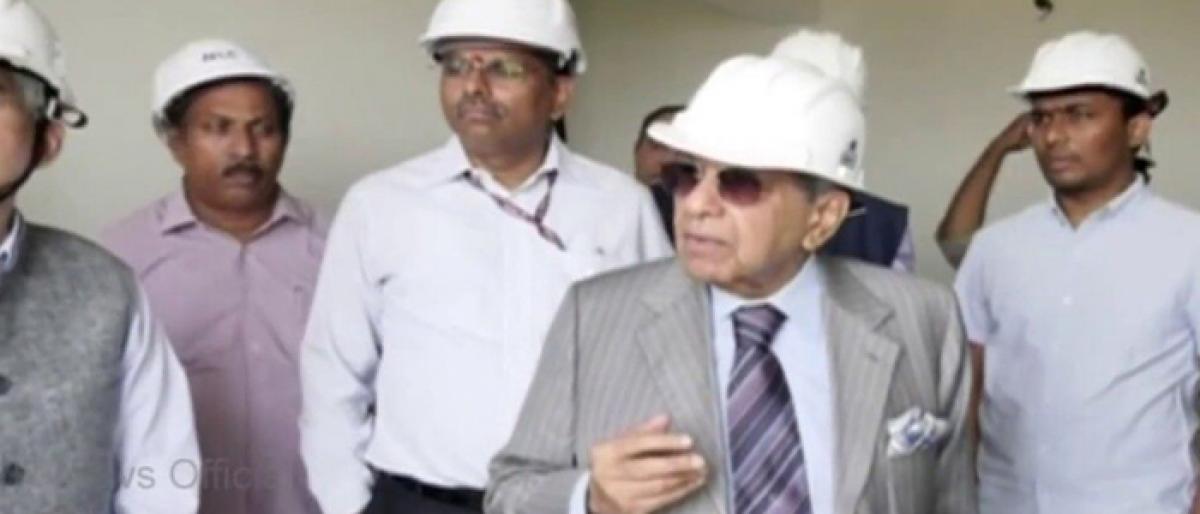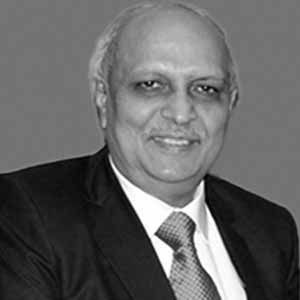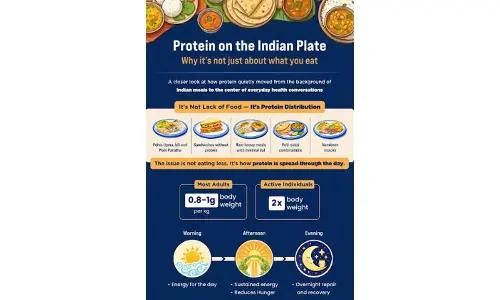Increasing debts, fiscal profligacy major concerns

The 15th Finance Commission constituted for making recommendations for the period from 2021 to 2025 was recently in Amaravati and interacted with the State government, different political parties and others for making their assessment before giving their award
The 15th Finance Commission constituted for making recommendations for the period from 2021 to 2025 was recently in Amaravati and interacted with the State government, different political parties and others for making their assessment before giving their award. They were also due in Hyderabad but now that may materialise only after the elections. 14th Finance Commission, when the State was bifurcated, was given additional terms of reference to take into account the bifurcation of the State and make recommendations accordingly for the new States as well.
They met the Andhra Pradesh State government in Tirupati and it was impressed on them how the bifurcation of the State is impacting the revenues and resources of the State. They took full cognizance of the issues raised by the government of Andhra Pradesh and were generous in their award. Andhra Pradesh was the only State other than northeastern States to get revenue deficit grant for the full five-year period of their award. As usual for the 15th Finance Commission, the Andhra Pradesh government, like all other State governments has presented projections of revenue expenditure for the five-year period.
By now, the Finance Commission has perfected a normative approach to assess the State’s revenue generation capacity as well as the expenditure required to provide the basic minimum services and are going to accordingly fill up the gap if any, either through tax devolution or grants as required. But more importantly, an issue which needs to be looked into across all the States by the Finance Commission is the unsustainable debt levels the State governments are accumulating, negatively impacting State finances.
There is a provision in the Constitution for seeking the Central government’s approval for raising loans if amounts are due to the Central government from previous loans. The State governments are able to circumvent it by raising off budget borrowings. It is high time the Finance Commission addresses itself to this particular issue and puts in place a proper mechanism so that none of the State governments can violate the FRBM conditions and lead the States into debt trap.
They should reiterate the Fourteenth Finance Commission recommendation in this regard for an independent fiscal council which should have powers to check the fiscal profligacy of not only the States but also of the Central government as well.
Another suggestion of the 14th Finance commission that the sanction of works under capital head should have a relation to the provisions made in the budget also need to be examined by the 15th Finance Commission and give their concrete recommendations in this regard since most of the State governments have the tendency to spread the funds thin by sanctioning too many projects not supported by budgetary allocations.
Another important issue is, if the local body elections are not held by the State government, grants to the local bodies are stopped. The culprit here is the State government whereas the punishment is being meted out to the local bodies. This should be changed in such a way that if the local body elections are not held within time, grants to the State government rather than to the local bodies should be stopped. If the shoe pinches at the right place, necessary action as required will be taken by conducting local body elections on time.
14th Finance commission increased the share of the States in the divisible pool of Central taxes from 32% to 42%. This has not resulted in a corresponding increase in State expenditure on merit sectors like health and education across all States. Whereas the increase in expenditure on health in a State like Bihar post 14th FC award is about 50%, in Andhra Pradesh it is around 15%. The terms of reference of 15th Finance Commission refer to the flagship schemes of the government of India and taking their requirement into consideration. Most of the flagship schemes of the government of India are actually implemented by the State governments. Instead of making a separate provision for flagship schemes from the government of India, it would be a better idea to make conditional increase in State finances to be spent on flagship schemes which can be decided by the National Development Council.
Lastly, the most contentious issue from the southern States’ point of view is taking 2011 population as the basis instead of 1971 population for making recommendations of the 15th Finance Commission for inter se distribution of resources between the States. The 1971 population has an inbuilt incentive of rewarding the States which have performed well in family planning. 2011 population rewards the poorer States as well as the States with maximum migration. There is a need to balance the competing interests of the States and criteria needs to be properly adjusted so that the States which have done well on the population control do not lose out.










